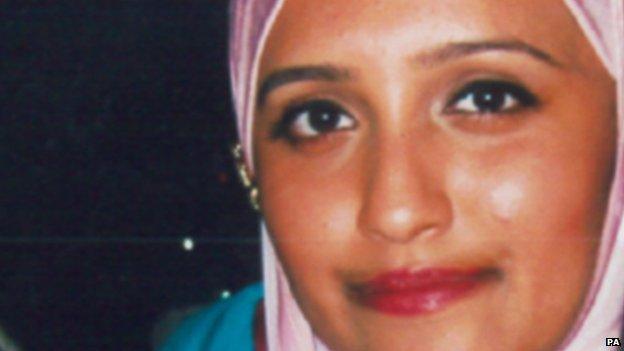Anti-terror strategy 'needs constant review', MPs hear
- Published
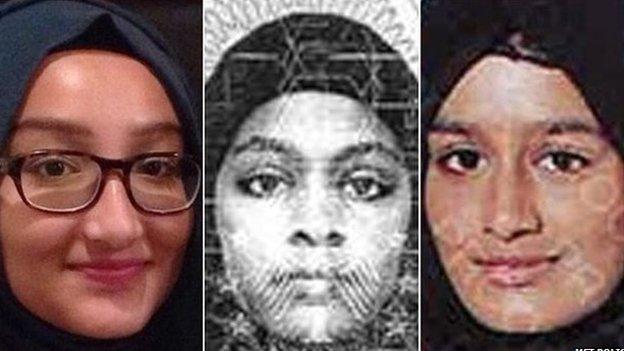
From left: Kadiza Sultana, Amira Abase and Shamima Begum flew to Istanbul in February
The government's Prevent anti-terrorism strategy needs constant review, said the head of a school attended by three girls who travelled to Syria.
Mark Keary, head of Bethnal Green Academy, told MPs it was still not clear how they had been radicalised.
GCSE pupils Kadiza Sultana, Amira Abase and Shamima Begum left in February to join the so-called Islamic State group.
Mr Keary said efforts to prevent radicalisation had to keep pace as militants' recruitment tactics changed.
Giving evidence to the Home Affairs Select Committee, Mr Keary said the school had come under "huge scrutiny from counter-terrorism, the police... in a long-running inquiry" into the girls' radicalisation.
He said the inquiry had concluded the investigations would be moving elsewhere but "further down the line we are still no clearer what the agents of that change [the radicalisation] were."
'Hugely concerned'
He said the school had been fully engaged with the Prevent strategy from the summer of 2014, adding that what had happened had taken "many agencies by surprise".
"We are hugely concerned. We have looked into every aspect of our work, we have looked closely at what we as a school could or should have done that would have been different."
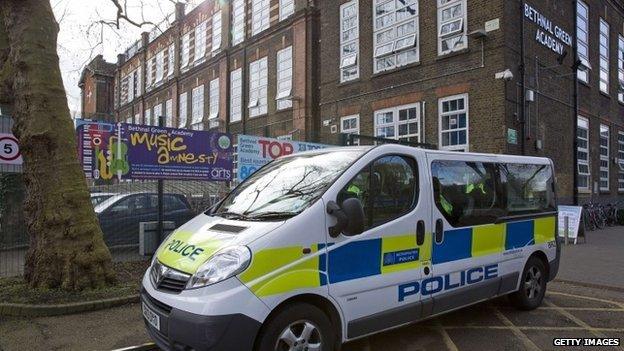
Both Mr Keary and former deputy head Alison Brannick said Prevent training for teachers had focused on "the stereotype of the angry young man", which none of the girls had fitted.
He added: "We were quite focused through the Prevent strategy on looking for symptoms of radicalisation that on this occasion simply had not materialised."
Changing tactics
Mr Keary said Prevent had already changed since February and must continue to evolve.
"Any legislative response or any strategy is in danger of becoming outmoded almost instantly because tactics for recruitment and radicalisation appear to shift and change in response...
"It needs to be very regularly reviewed across the board.
"We cannot be caught in the same situation when we imagine that the radicalisation process and those who represent a threat to our young people will simply stand still.
"What we've got to learn how to do is to adapt and be for once proactive in relation to this.
"The Prevent strategy, if it had one original flaw that perhaps lingers at this point is that it is predominantly reactive."
Mr Keary said the strategy would need commitment from school communities and staff, with work across the curriculum to educate young people to become more critical in their thinking.
The committee also heard evidence from Sara Khan, of the organisation Inspire, about the group's work within the Muslim community to challenge radical preachers, and from the advocacy group Cage.
- Published27 March 2015
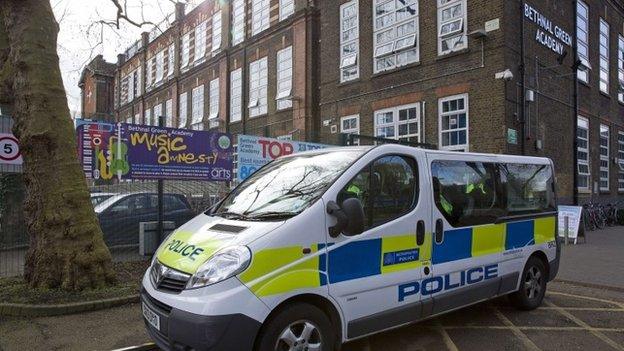
- Published10 March 2015
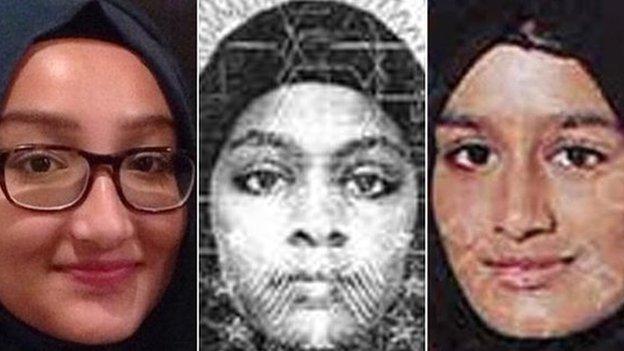
- Published23 February 2015
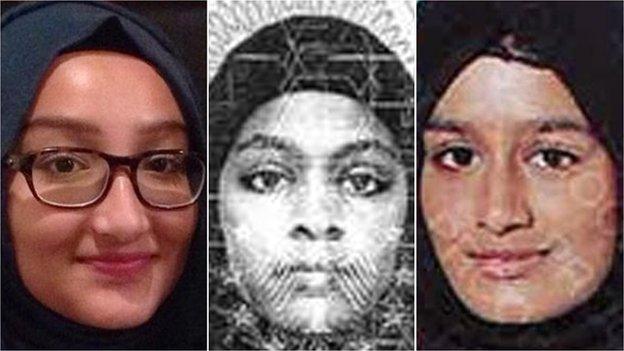
- Published6 October 2014
